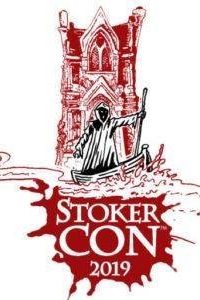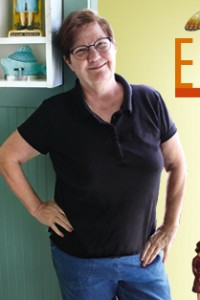Charlie Jane Anders: Whimsy Death Match

Charlie Jane Anders was born in Connecticut and grew up in the small town of Mansfield. She went to Cambridge University in England, studying English and Asian literature, and spent time studying abroad in China. She has lived in Hong Kong, Boston, and other places, and currently resides in San Francisco.
Anders began publishing SF with ‘‘Fertility’’ (1999) and has published over 100 stories since then in various genres, including Hugo Award winner ‘‘Six Months Three Days’’ (2011), also a Sturgeon and Nebula Award finalist. Her short SF has appeared in Asimov’s, Tor.com, F&SF, Tin House, and other venues. Debut novel Choir Boy (2005) won a Lambda Literary Award. Her first novel-length work of SF is science fantasy All the Birds in the Sky, out this month from Tor.
Anders is also a journalist, an editor, and an emcee. Her first book was non-fiction The Lazy Crossdresser (2002). She organizes and hosts the eclectic Writers with Drinks reading series, founded in 2001. With partner Annalee Newitz she ran Other magazine for five years, beginning in 2002; they also co-edited the anthology She’s Such a Geek: Women Write About Science, Technology, and Other Nerdy Stuff (2006). She was one of the original contributors to SF wesbite io9 and is now its editor-in-chief; she was honored with an Emperor Norton award for her work with Writers with Drinks and io9 in 2009. Her articles and essays have appeared in Mother Jones, Salon, McSweeney’s, and The Wall Street Journal, among other venues.
Excerpts from the interview:
‘‘What I was consciously thinking about as I was writing and revising All The Birds in the Sky was this narrative about finding where you belong in the world, and coming of age – the notion that we define ourselves through others, and we try to find people we belong with and can communicate with. When they’re in junior high school, Laurence doesn’t know any other mad scientists, and Patricia has never met any other witches. She’s completely isolated. They’re like, ‘If I can only find people like myself, I’ll be understood, and things will be perfect.’ Then we skip ahead to a time when they’ve found people like themselves, but it’s not great, and not perfect. There’s a whole other set of problems that comes with that. The people who are allegedly like you have a whole set of expectations they put on you, and they’re not necessarily connected to the person you want to be.
‘‘Any story like this is going to be about the use of power: how you use power responsibly, and whether you use your power for good or for ill. I tried to complicate it and have some of their biggest problems be their own blind spots and weaknesses. It’s a book that doesn’t really have villains, per se, except for Theodolphus, and he’s sort of a fake villain. He drops out halfway through the book, and by the end of the book you realize that, in a horribly sadistic way, he’s been doing the right thing all along, or at least he’s had a good effect.”
…
‘‘Originally the novel was much more of a genre pastiche. Laurence was going to be a pastiche of Jimmy Neutron, Boy Genius and a bunch of other boy adventurer characters, and he was going to have a million things that he invented, and aliens and spaceships. It was much more science fantasy, in fact. Patricia was going to be like Harry Potter and a bunch of other characters, fighting evil wizards and monsters and dragons. Then I thought, ‘That’s not going to work as well.’ I decided to make the science as real as I could. Back in the day at io9, we used to have a column called ‘Ask a Physicist’ and a column called ‘Ask a Biogeek’, and the guys who wrote them, Dave Goldberg and Terry Johnson, are still super willing to answer any weird science questions. They both have written books about science. Terry wrote How to Defeat Your Own Clone and Dave wrote The Universe in the Rearview Mirror. They’re awesome.”
…
‘‘My editor Patrick Nielsen Hayden is very fond of saying mine is the first book that’s science fiction and fantasy, as opposed to science fiction or fantasy. It’s a genre hybrid. Whether that’s true depends on how you look at the presence of magic: if any magic at all makes a book fantasy, mine’s not the first. I guess it’s slipstream or something. It has some literary aspirations as well. I had this tone in my head that was like Vonnegut, or Douglas Adams, but with seriousness. The book gets pretty dark and bleak in parts. It is about growing up. There’s the coming-of-age narrative, and once you’ve come of age, there’s more growing up from there.
‘‘I have a two-book deal with Tor. I’ve written one and a half drafts of the second book for them. All I can say is, it’s completely different. It’s set on an exoplanet in the future. I wanted to stretch out a little bit and make it as different as I can from All the Birds in the Sky. Stylistically, it’s different. It doesn’t have any humor. It’s still weird, but in a different way. Part of the idea is not getting pigeonholed. Having watched so many authors’ careers over the years, if you get known for doing the books with puns in the titles or whatever, eventually people decide they don’t want that anymore, or that’s all they want. The Locus Online reviewer Lois Tilton has dinged me for being too glib and over-reliant on quirky humor to paper over the cracks in my stories sometimes. When I get criticism like that, I try not to take it to heart too much. I wrote a thing on io9 about this: how to not take criticism personally. There’s a process I go through, like the stages of grief. After a few days I can come back and say, ‘That’s not entirely fair, but yes, I do get glib sometimes. I do sometimes use the humor to avoid having to really drill into what the characters are dealing with.’”
…
‘‘Most writers can do both short fiction and long. I’m writing an essay about that right now for Asimov’s. The thing that’s good about writing short fiction is it forces you to write a lot of endings. I feel like short fiction, just in the last 20 years, has drifted away from being plot heavy to just being an impressionistic moment. A lot of my short fiction is super plotty. I love short fiction that has plot twists, and things happen, and then boom, at the end there’s an explosion. I think that’s one of the things short fiction does really well: being super plot heavy, with an intense dose of stuff happening and being resolved. It took me a long time to get better at short fiction, too. While I was writing these novels, I wrote a ton of short fiction. My short fiction in the last four or five years has gotten more attention. The first several years we were doing io9, I’d constantly meet people who were like, ‘I didn’t know you wrote fiction.’ This is my job, fiction is what I do! But nobody knew me for writing fiction until 2011 or 2012. I hope I’ve been progressing. The thing with short fiction is getting enough character and emotion into it, getting it to feel real enough so that it’s not just plot and a cool idea. That’s hard. When you write a novel you have to sustain it for even longer. You can sustain anything for five or ten pages, but to sustain it for 200 pages, there has to be a core that you build out from. Finding that core is the big challenge of short fiction – finding the core of the story, what the characters are dealing with emotionally and thematically, and making that feel really present in the story. In a novel you have to find the core and you have to keep building out from it so that it’s present through the whole thing.”
…
‘‘At io9, our posture towards the book world has always been different from our posture towards the movie world, and that’s something Annalee and I worked out together. Not just because Annalee and I both write science fiction as well as writing about science fiction – there’s the fact that the book world is just different. If a movie comes out, it’s important to say this new movie that you’ve been hearing about for months really blows, it’s a terrible movie, don’t see it. Whereas with books, there are sites out there that’ll review every book and give a thumbs up or a thumbs down, but we’re very selective about what we review. Generally, if there’s a book I don’t like, I won’t finish it, and I don’t review books I don’t finish. A lot of times our readers haven’t heard about a book until we tell them about it, so I don’t want the first thing people to hear is, ‘This book you’ve never heard about before sucks, don’t read it.’ I worry that’ll translate to ‘Don’t read books.’ It’s better to speak through our silence. You’ll never know if something we didn’t cover was a book I tried to read and couldn’t get into, or a book I never got around to. There was one debut that a bunch of places said was one of the year’s biggest, most amazing books. I read it cover to cover and said, ‘This is not only really dumb, it’s also kind of a terrible book.’ It’s the one where the spin of the world slows down and everybody starts floating away. It was terrible science, and the story was terrible. In that case I came out and said, ‘Look, this book you’ve been hearing about non-stop lately, it’s really bad.’”
Read the complete interview in the January 2016 issue of Locus Magazine. Interview design by Francesca Myman.





Why would Charlie Jane Anders think Vonnegut and Adams weren’t serious?
It seems to me that’s like thinking Jane Austen was twee.